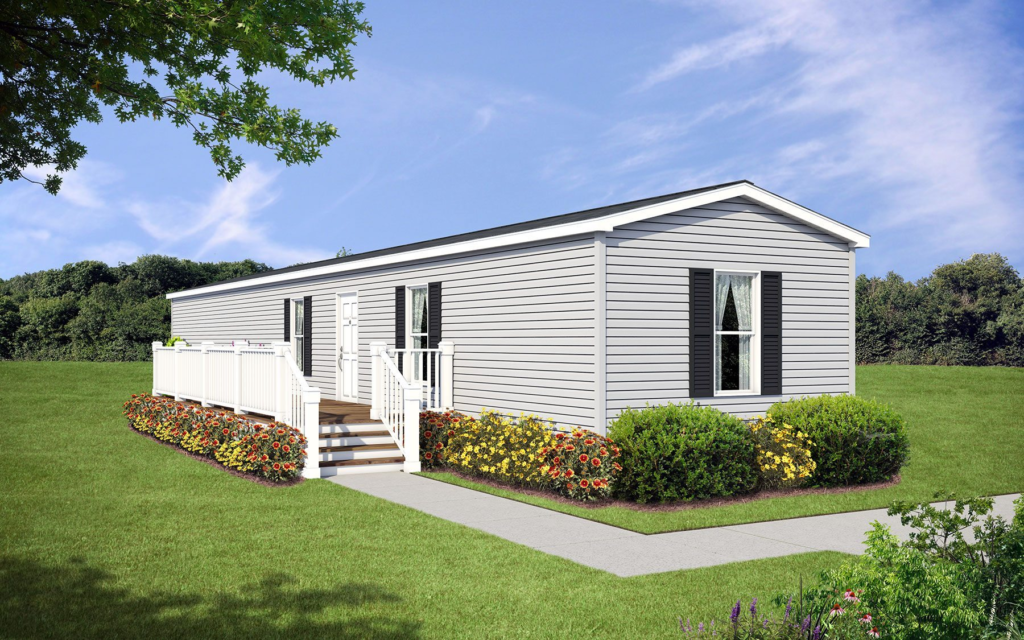RVs and mobile homes seem to be alike. Both of these types of homes are on-the-go. Making life more compact, practical, simple, and highly efficient. An RV makes the most of space and allows a life on the move. A mobile home, on the other hand, also works as a compact setup for customized living.
So, is an RV a mobile home? That’s what we will investigate in this article. Hold on to the end to learn a great deal about RVs and mobile homes.
What is an RV?

Recreational vehicles, commonly known as RVs, represent a whole array of travel or motorized homes. These homes are designed to move around. Imagine a van and a home combined—that’s the RV in a nutshell. People who prefer a temporary living setup are sure to enjoy the RV. Consequently, RVs are great for traveling, camping, animal tracking, vlogging for travel, geocaching, and many more.
An RV vehicle is categorized based on classes: Class A, Class B, and Class C motorhomes. Its other variations are referred to as fifth wheels, camper vans, and travel trailers.
Here are its general types:
Towable RVs
Both the fifth wheel and the travel trailer belong to the towable RVs; these vehicles can be attached to other moving vehicles during transit. With a dense floor plan and accessory options, they exude the coziness of a home. As a plus, you can remove or attach these units to a tow vehicle whenever you want.
Motorhomes
Class A motorhomes are the giants in the business. They tend to be larger in size, like that of a bus. Class B motorhomes, in comparison, are smaller RVs. Finally, class C marries class A and B’s extreme features, balancing compactness and spaciousness.
What is a mobile house?

Mobile homes are any home designed for easy transport. Most mobile homes, especially those that are affiliated with modular homes, are fabricated within a factory’s controlled space, coming out as either precise or versatile.
Set as either permanent or semi-permanent, they are usually constructed with a compact, light and sustainable design aligned with the U.S. Department of Housing and Urban Development (HUD). Once assembled in the factory, a mobile house is shipped and completed on a construction site.
Thanks to the HUD code in 1976, a number of mobile homes (now specifically referred to as manufactured or modular homes) adhere to today’s safety, energy efficiency, and overall sustainability standards.
What are key distinctions between an RV and a mobile house?
The following are the key distinctions between an RV and a mobile house:
Mobility
RVs: RVs exist to make the most of temporary living. Designed with motorized compartments or with direct wheels, they resemble a vehicle and are useful during camping, travels, migrations, etc. They can be towable or fixed as a motorhome. Ultimately, RVs cannot be repurposed as permanent living units.
Mobile houses: Upon completion of construction on a site, mobile houses cannot be moved around. The only time they are in transit is after they’ve been partially assembled in the factory. Once they have been planted on-site, they stay there as either a permanent or semi-permanent living unit.
Construction Standards
RVs: Constructing RVs is done differently. It is, in many ways, the opposite of building traditional houses. First, it requires the use of extra-light materials for easier mobility, engine optimization, and gas placement. After that, the vehicles are completed based on function: for towing or for motorhoming.
Mobile houses: Following the HUD code, mobile houses are built with precision, sustainability, and durability in mind. Building them requires a different set of safety and construction standards to follow. In some ways, the materials needed for building mobile homes are similar to those of mobile homes.
Function
RVs: Resembling more recreational vehicles than an actual home, RVs are great for traveling, camping, vacationing, and quick transfers.
Mobile houses: Made for a fixed settlement, mobile houses are intended to last longer without losing customizability, upgrades, or possible resale values.
Size and Amenities
RVs: There are many sizes to choose from for RVs. Some appear as compact camper vans, while others can be as spacious as Class A motorhomes. Imagination is the limit to its interior innovations. Depending on the type and class, their amenities can range from the most basic to the most luxurious.
Mobile Houses: Mobile homes, while technically compact, are usually larger than RVs. Also, they frequently come in similar sizes. What they differ, though, is in terms of customizability, floor plan options, layouts, etc. Mobile houses usually include standard features like bathrooms, standard-size kitchens, and several bedrooms.
Zoning and Placement
RVs: RVs cannot stay on private property permanently. Some areas prohibit RVs from staying more than a day. Zoning regulations ensure that RVs park only temporarily. The length of time an RV can stay in an area depends on the regulations covering it.
Mobile houses: Also subject to zoning regulations, mobile houses are constructed on a site for permanence. Thus, the legalities involved in clearing the house’s construction on a property can be more laborious. One cannot expect to install them and then later have them removed. That would be highly costly for the owner. Meanwhile, mobile houses can be put on either private or community property, depending on the designation of the zoning policies.
HUD Code Compliance
RVs: Since RVs function more as vehicles, they do not meet the safety and construction standards of the HUD code.
Mobile houses: Mobile homes, especially manufactured homes, are expected to follow the construction, safety, efficiency, and sustainability standards set by the HUD.
Conclusion: Is an RV a mobile home?

No, an RV is not a mobile home. While they can be alike in terms of providing mobile living options, they are more different in many ways. RVs are designed for temporary living on the road. Equipped with wheels for mobility, they are expected to move around a lot. In comparison, mobile homes, now known as manufactured homes, are permanent or semi-permanent structures constructed to specific building standards.
Manufactured homes rigorously yield to HUD codes. Part of their adherence is their proclivity for permanent residence. Once planted on a construction site, manufactured homes are impossible to transfer.
The difference between the two lies in their construction standards, legalities, and overall function. RVs are for recreation and transit, while manufactured homes are for a settled lifestyle.


